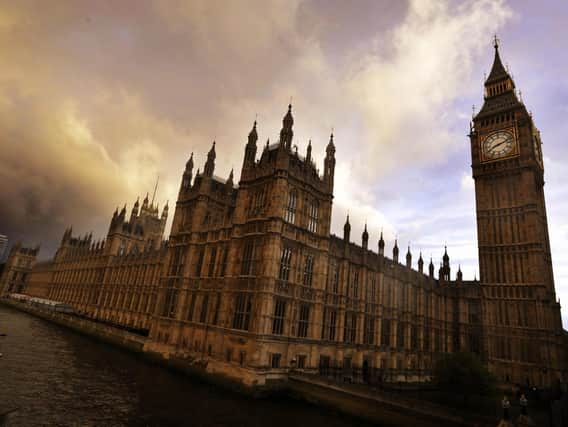Will rebel MPs avoid the whip back at Parliament and away from WhatsApp? - Mia Briggs


When MPs return from summer recess in September they will be doing so in person.
This will come after over a year of the hybrid Parliamentary arrangements imposed as a result of the pandemic, with MPs largely based at home and participating via Zoom. This period has coincided with, and been part of the reason for, a backbench that is not afraid to rebel. Will the return to Westminster also bring a return to MPs toeing the party line, or is the independent mindedness here to stay?
Advertisement
Hide AdAdvertisement
Hide AdAt the time of writing, more than 40 Conservative MPs have signalled their opposition to measures requiring Covid vaccination passports to enter crowded indoor venues such as nightclubs, with some threatening to boycott October’s party conference if they are a condition of entry. If brought to a vote in September and Labour opposes the measures, this would result in a defeat for the Government.
This is the latest in a string of coronavirus related rebellions, although there has been dissent on wider issues too. Over the last year we have repeatedly seen sizeable opposition from within the party’s own ranks. In December 2020, more than 50 Conservatives voted against implementing tiered lockdown restrictions in England, following only a few months earlier more than 40 Tory MPs opposing the 10pm curfew introduced for pubs and restaurants.
In June, 49 Conservatives voted against postponing the lifting of all restrictions. This was swiftly followed by a much larger than expected rebellion in July over legislation banning unvaccinated workers from entering care homes, criticised by opponents as too broad and being rushed in without scrutiny.
It is not just on Covid related measures that there is internal dissent. Whilst Boris Johnson saw off a large rebellion over the cut to foreign aid by insisting it is a temporary move, this didn’t stop former Prime Ministers Theresa May and Sir John Major condemning the plans and 24 Conservative MPs voting against it. There is also a flexing of backbench muscle over policy on the green agenda with unease over the cost of net zero, in particular over the financial impact on households of moving away from gas heating.
Advertisement
Hide AdAdvertisement
Hide AdTo date, the Prime Minister has not lost a vote in Parliament, although he has had to rely on Opposition support to push some measures through.
Whilst a difficult group of ‘usual suspects’ is a longstanding feature of party politics, most prominently seen in the Eurosceptic European Research Group, what has been more surprising is the willingness of ‘new’ MPs (those elected in 2019) to go against the grain.
Generally, eager to please and keen to advance their careers, newly elected MPs are loyal and will do as they are told, voting wise. However, for the 107 new MPs elected in December 2019, they had only been in Parliament a couple of months before the pandemic hit and they were sent back to their constituencies; not long enough to be exposed to party discipline that is more easily exercised when whips can talk in person to their flock. Instead, MPs have been mostly chatting and organising amongst themselves in WhatsApp groups, emboldened by not having to tell a whip face to face that they are rebelling.
The introduction of online voting during the first lockdown also meant that MPs no longer had the experience of passing through the opposing voting lobby to their colleagues, which made it easier to rebel. A former whip described the situation to Politics Home as “a whip’s worst nightmare”.
Advertisement
Hide AdAdvertisement
Hide AdSpending more time in the constituency also means MPs are likely to be hearing more of the concerns of their constituents. Some of the 2019 intake are representing seats that have never had a Conservative MP before. The Red Wall are keen to stand up for their local interests and have formed an effective, unified voice. This is causing tension within the Party, with many in the shires fearing that Boris is neglecting them through the focus on ‘levelling up’.
Will things now go back to ‘normal’? Undoubtedly, more battles loom ahead for the autumn. The Government’s forthcoming planning reforms, warned by former party leader William Hague as having the potential to become Johnson’s poll tax given the widespread opposition from Conservatives in the South, will be one of the biggest battles. It may be that having gained their taste for independence, Tory MPs will not easily revert to being the generally compliant, disciplined group they used to be.